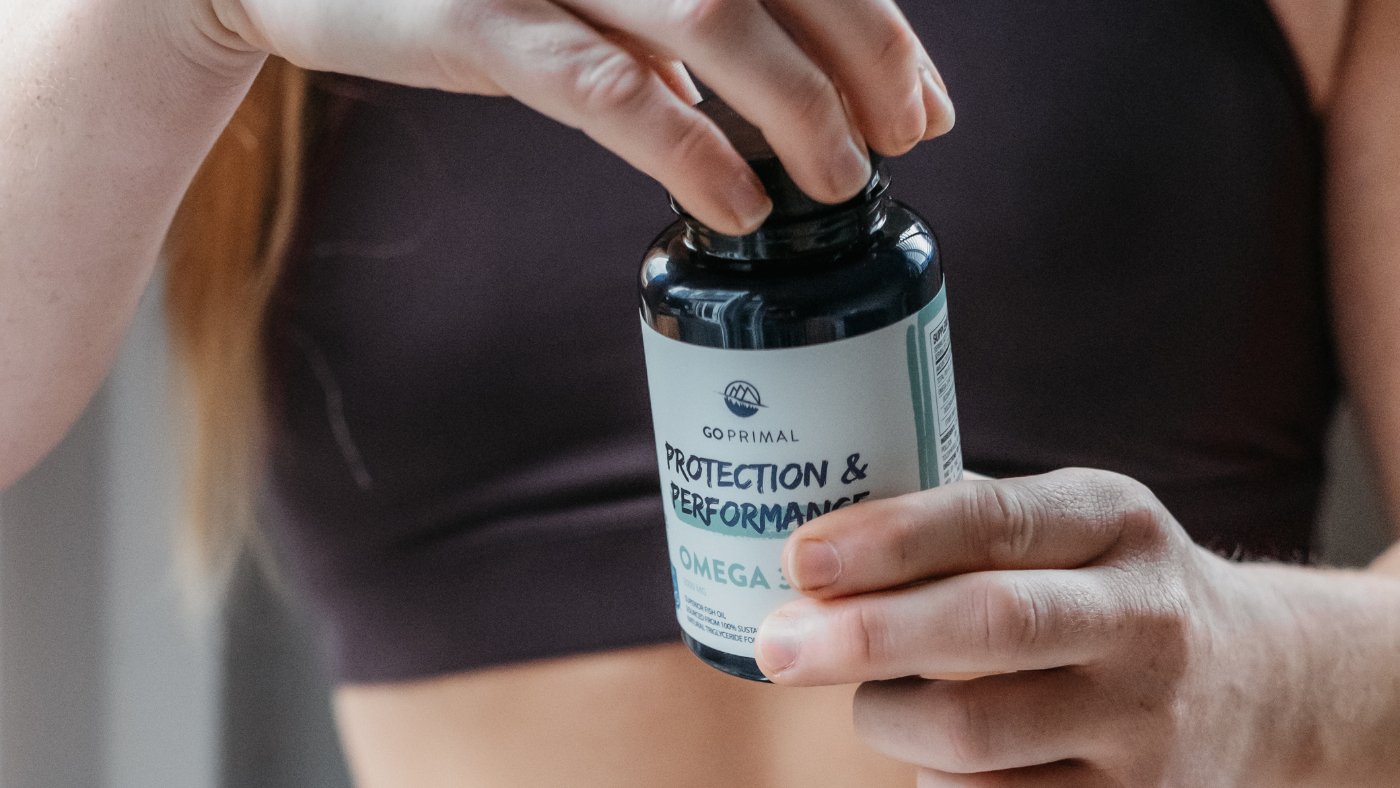
Relieve muscle soreness with Magnesium and Omega 3
💪 Are you experiencing muscle soreness after a workout?
If yes, you’re not alone! Post-workout muscle soreness is a common condition that affects many people. Fortunately, there are natural remedies that can help alleviate muscle soreness and help you get back to your routine quickly. In this blog post, we will discuss how magnesium and omega 3 can help you relieve muscle soreness. Also, you'll learn about some other strategies that can help alleviate this discomfort.
❓ Why You Get Sore Muscles After Training
When you workout, your muscles undergo physical stress that leads to microscopic damage in the muscle fibers. This damage is known as muscle trauma, which causes soreness, stiffness, and inflammation. The good news? This type of muscle damage is (up to a certain level) necessary for muscle growth and strength gains.
⚠️ But if you ignore your body’s warnings for too long, a localized inflammation can turn into chronic inflammation that can keep you from training for weeks. Insufficient recovery, poor hydration, or a lack of nutrients like magnesium can worsen soreness. So, let’s dive into how magnesium and omega 3 help fight this issue!
🧂 Magnesium and Omega 3: The Perfect Duo for Muscle Soreness Relief
One effective strategy to prevent and relieve muscle soreness is to supplement your diet with magnesium and omega 3 fatty acids. Here's why:
🧘♂️ Magnesium to Reduce Muscle Pain and Cramps
Magnesium is an essential mineral with many key roles. One of its most important? Helping muscles relax.
-
It regulates stress hormones.
-
Boosts serotonin production (which helps you sleep better and recover faster).
-
Supports nerve signal transmission and can prevent cramps.
🤕 Frequent cramps? That might be a sign of magnesium deficiency. Getting enough magnesium will quickly help prevent muscle pain and cramps.
📊 How much magnesium do you need?
-
Men: 400–420 mg/day
-
Women: 310–320 mg/day
You can get magnesium from spinach, almonds, and avocado, but modern farming practices mean our food might be lacking. That’s why supplements can be a smart solution.
✅ Choose: Magnesium bisglycinate or taurinate (high absorption).
🚫 Avoid: Magnesium oxide (low bioavailability and laxative effect).
🐟 Omega 3 to Control Inflammation
Omega-3 fatty acids are healthy fats with powerful anti-inflammatory properties. After working out, your muscles develop small lesions that trigger inflammation. Some inflammation is normal, but too much causes pain and stiffness.
🥴 Processed foods = high in omega-6 = more inflammation.
✨ Omega-3 = balances it out, supports heart health, improves blood flow, and accelerates muscle recovery.
🍣 What are good sources of Omega 3?
You can get omega-3 from fatty fish like salmon, but if that's hard to include in your daily routine, go for a quality omega-3 supplement.
👉 Look for:
-
Fish oil from wild waters.
-
High levels of both EPA and DHA.
-
Low heavy metal content.
🧴 Other Strategies to Alleviate Muscle Soreness
Besides magnesium and omega 3, try these proven strategies:
-
🛌 Rest and Recovery: Your body rebuilds while resting. Don’t skip it!
-
🔥 Warm-up and Cool Down: Prepares your muscles and prevents damage.
-
💧 Hydration: Helps flush out toxins and reduces soreness.
-
💆 Massage: Boosts circulation, relieves tension, and reduces pain.
✅ In Conclusion...
Muscle soreness can be managed naturally. By combining magnesium, omega 3, and supportive habits like rest, hydration, and massage, you can speed up recovery and feel stronger, sooner.
✨ Listen to your body and give it the care it needs to perform at its best!
👉 Don’t forget to check out our latest blog post:
"The Top 4 Supplements to Speed Up Recovery After a Workout" 🏃♀️


